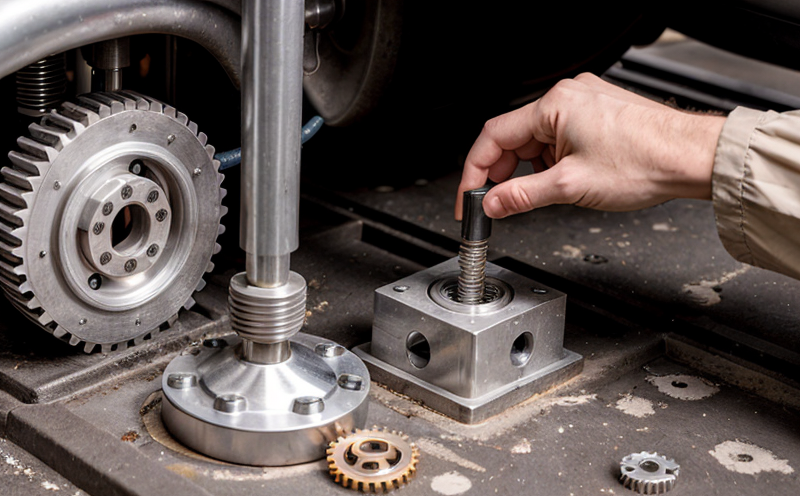ASTM D638 Tensile Testing of Plastics Validation Method Development Test
The ASTM D638 standard method is widely utilized in the additive manufacturing and 3D printing sectors to determine the tensile properties of plastics. This test serves as a critical quality assurance tool, ensuring that materials meet specified mechanical property requirements before being used in production processes. The testing procedure involves subjecting specimens cut from parts or prototypes to controlled tensile forces until failure occurs, allowing for accurate determination of yield strength and ultimate tensile strength.
Validation through ASTM D638 ensures consistency across different manufacturing batches and facilities. This method is particularly important when working with novel polymers that may exhibit unique mechanical behaviors under stress. By developing a validated test method tailored to specific additives or blends, manufacturers can ensure compliance with regulatory standards while also optimizing their processes for efficiency.
Our laboratory specializes in creating customized ASTM D638 tests designed specifically for additive manufacturing applications. Our team works closely with clients to understand their unique needs and develop methods that accurately reflect the properties of materials being tested. This approach ensures reliable data which can be used during design iterations, material selection processes, or quality assurance checks.
When selecting specimens for testing according to ASTM D638, it's essential to consider factors such as sample size, shape, orientation relative to part build direction, and post-processing conditions like annealing. Proper specimen preparation is crucial; any defects or inconsistencies could lead to erroneous results. Our technicians are experienced in handling complex samples and ensuring that each piece adheres strictly to the standard.
Once specimens have been prepared correctly, they undergo testing on advanced mechanical testers equipped with high-resolution force measurement systems capable of capturing detailed information about stress-strain relationships during loading cycles. Data collected includes strain rates, peak loads achieved before fracture occurs, elongation at break, and other key metrics that provide insight into the material's structural integrity.
After completion of each test run, our lab analysts meticulously review all raw data points to ensure accuracy and consistency with expected outcomes based on the client’s requirements. Reporting follows ISO 17025 standards ensuring transparency and reliability for stakeholders involved in any project involving additive manufacturing processes.
By leveraging ASTM D638 validation methods tailored specifically for additive manufacturing applications, our clients gain valuable insights into their materials' performance characteristics early in development cycles. This allows them to make informed decisions regarding material choices, process parameters optimization, and overall product quality assurance strategies.
- Eco-friendly printing practices
- Reduction of waste through optimized testing protocols
- Increase in recycling rates due to better understanding of material behavior
- Promotion of circular economy principles by facilitating more sustainable manufacturing processes
Our commitment to environmental responsibility extends beyond just providing accurate tests; we also strive to minimize our own ecological footprint. By adopting efficient workflows and utilizing state-of-the-art equipment, we aim to reduce energy consumption and waste generation throughout the testing process.
Customer Impact and Satisfaction
The ASTM D638 tensile testing validation method development service offered by our laboratory has a direct positive impact on customers across various industries. Quality managers benefit from having access to precise, repeatable test results that help them maintain consistent product quality standards. Compliance officers can rely on these tests as part of their efforts to ensure regulatory adherence throughout supply chains.
R&D engineers find value in the customized nature of our testing services since they allow for exploration into new materials and manufacturing techniques without compromising on accuracy or reliability. Procurement teams appreciate knowing that suppliers are delivering products meeting stringent mechanical property specifications, thereby reducing risks associated with substandard materials entering their operations.
Our high level of customer satisfaction stems from our dedication to excellence in every aspect of service delivery—from initial consultation through final report generation. We pride ourselves on providing timely responses and clear communication regarding any concerns or questions that may arise during project execution.





